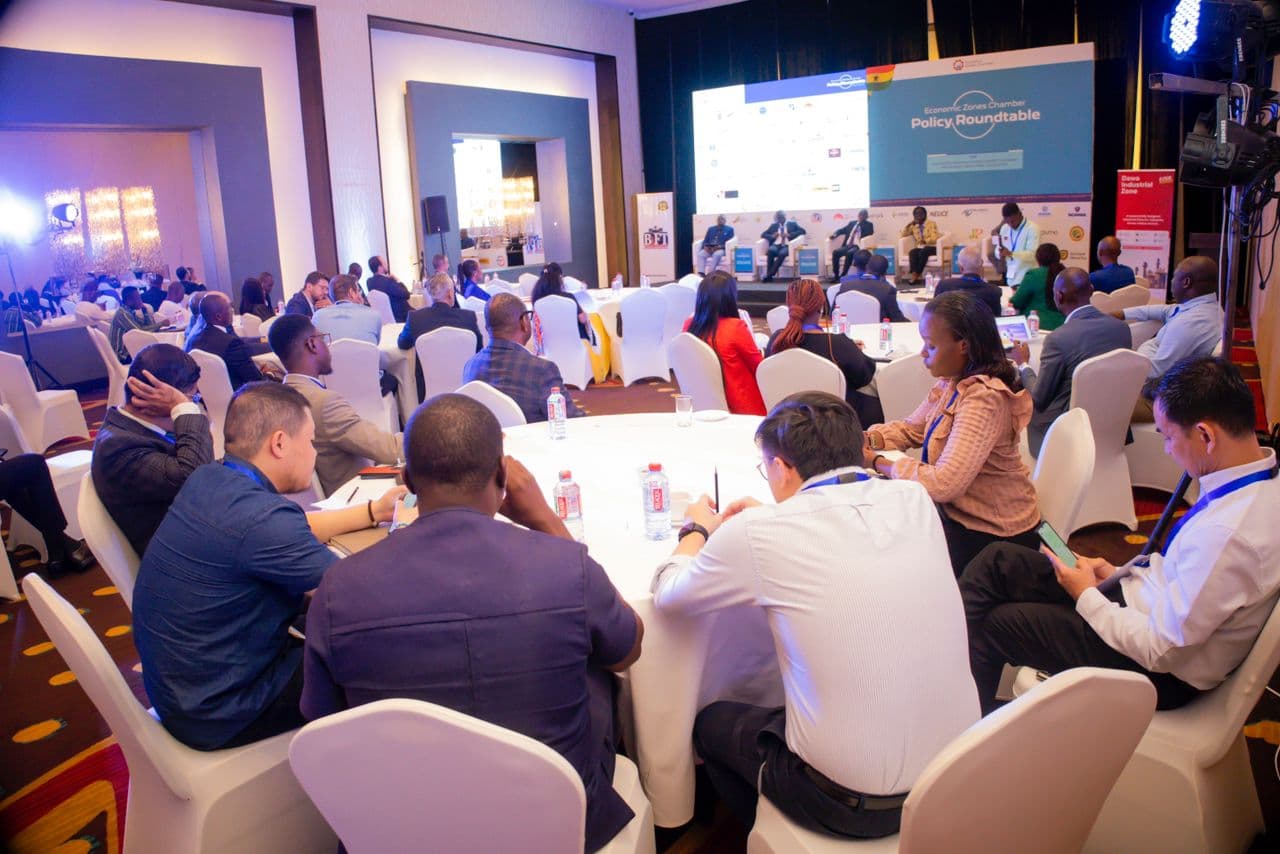
Special Economic Zones (SEZs) have emerged as key instruments for stimulating economic growth and development in recent years. This is especially true in the context of the integration of Africa into global value chains (GVCs). The unique regulatory frameworks and incentives that these zones offer serve as catalysts for attracting foreign investment, encouraging exports, and accelerating industrialization. These zones are defined by their distinctive regulatory frameworks. Special Economic Zones are a promising road for countries to climb the rungs of global value chains, which will ultimately improve their competitiveness and integration into the global economy.
Throughout history, Africa's participation in global value chains has been restricted, and the continent has frequently been relegated to the role of producing raw materials and items with minimal value-added manufacturing. The construction of special economic zones, on the other hand, gives an opportunity to reverse this trend by providing an environment that is conducive to the addition of value, the transfer of technology, and the development of skills. Special Economic Zones have the potential to attract multinational businesses (MNCs) that are interested in capitalizing on Africa's rapidly expanding consumer markets and plentiful natural resources. These MNCs can be attracted to SEZs by offering favorable policies such as tax incentives, streamlined regulations, and infrastructure support.
The ability of special economic zones to concentrate economic activities within designated geographical areas is one of the most significant advantages of these zones. This ability allows for the development of economies of scale and agglomeration effects. The seamless flow of commodities, services, and information along global value chains is made possible by the concentration of enterprises, which, when combined with efficient logistics and infrastructure, makes this facilitation possible. In addition, special economic zones frequently function as centers for innovation and the dissemination of information, as businesses frequently engage in cooperative research and development endeavors to boost their levels of productivity and competitiveness.
As a result of the growing recognition of the significance of special economic zones in the economic development strategies of African nations, there has been an increase in the number of such zones created across the continent. Special Economic Zones have been utilized effectively by countries such as Mauritius, Ethiopia, and Rwanda to successfully attract investment in vital areas such as manufacturing, agribusiness, and technology industry. Not only do these zones create employment possibilities, but they also contribute to the development of skills and the dissemination of technology. As a result, they help to reinforce the local industrial base and promote sustainable economic growth. These zones also serve as platforms for knowledge transfer and technology exchange between local and foreign companies, fostering innovation and competitiveness in the region. Additionally, the establishment of Special Economic Zones can help diversify the economy and reduce dependence on traditional sectors, leading to a more resilient and dynamic economic landscape.
Furthermore, special economic zones play a significant part in enhancing local capacities and facilitating the transfer of technology inside African nations. SEZs let domestic companies learn best practices, improve their production processes, and strengthen their competitiveness in global
markets. They achieve this by offering access to modern technologies and managerial know-how, as well as by hosting international investors. Africa's industrialization agenda must take advantage of this technology diffusion impact since it speeds up the shift from traditional manufacturing sectors to modern manufacturing sectors.
Nevertheless, the successful implementation of special economic zones in Africa necessitates careful planning, efficient governance, and policy interventions that are specifically targeted. Governments must find a middle ground between the provision of incentives to entice investment and the guaranteeing of compliance with labor and environmental norms. In addition, the development of infrastructure, particularly in the areas of transportation, electricity, and telecommunications, is fundamental to the success of special economic zones in terms of supporting their operations and connecting them to both local and international markets.
Also, for special economic zones to work well in Africa, we need examples like Ghana's Meridian Industrial Park, which has been helped by careful planning, good management, and focused policy changes. Meridian Industrial Park shows how useful SEZs can be in the area; it provides a good setting for adding value, sharing technology, and learning new skills. Meridian Industrial Park brings in international companies that want to take advantage of Africa's growing consumer markets and wealth of natural resources by offering helpful policies like tax breaks, fewer rules, and strong infrastructure support.
Even more, special economic zones ought to be included in other industrial and trade policies to optimize the impact that they have on economic development. This includes ensuring that the objectives of the Special Economic Zone are aligned with the aims of the national development plan, developing synergies with other industries and economic clusters, and promoting backward connections with local suppliers. SEZs can be fully utilized as engines of economic transformation and structural change if they are incorporated into a comprehensive policy framework. This allows African countries to take advantage of their full potential.
Furthermore, the aims of special economic zones need to be aligned with the goals of national development to successfully integrate SEZs into broader industrial and trade strategies. Countries in Africa have a responsibility to guarantee that the activities that take place within special economic zones contribute to broader socioeconomic goals, such as the eradication of poverty, the creation of jobs, and inclusive growth. In order to achieve this alignment, various government agencies, stakeholders from the business sector, and development partners must work closely together to guarantee that the implementation of policies is consistent and synergistic.
In order to maximize the influence that special economic zones have on economic development, one of the most important aspects is to encourage backward linkages with local suppliers. Countries can stimulate local production, provide employment opportunities, and strengthen the resilience of domestic businesses if they encourage tenants of special economic zones to purchase inputs and services from domestic suppliers. By implementing preferential procurement laws, supplier development programs, and capacity-building initiatives to boost the competitiveness of local businesses, governments have the ability to stimulate the formation of such linked relationships.
Again, to capitalize on the spillover effects that special economic zones (SEZs) have on the economy as a whole, it is vital to cultivate synergies with other industries and economic clusters. Instead of functioning in isolation, special economic zones (SEZs) should be included into the industrial ecosystems and value chains that are already in place. Integration can take several forms, including the promotion of collaboration between special economic zone (SEZ) enterprises and local sectors, the facilitation of technology transfer and knowledge exchange, and the encouragement of joint ventures and strategic alliances. Innovation and growth are most likely to happen when SEZs are connected to current economic ecosystems. This could make people more productive, create jobs, and help the region's economy grow as a whole.
SEZs can be fully utilized as engines of economic transformation and structural change if they are incorporated into a comprehensive policy framework. This allows African countries to take advantage of their full potential. To do this, it is necessary to have a long-term view and acknowledge special economic zones as a component of a more comprehensive plan to modernize and diversify the economy. It is the responsibility of governments to ensure that the regulations governing special economic zones are consistent with other policy goals, such as industrialization, trade facilitation, investment promotion, and the development of human capital.
In addition, the implementation of efficient governance structures is necessary to guarantee the success and long-term viability of special economic zone initiatives. This includes decision-making processes that are open and accountable to the public, robust regulatory frameworks and monitoring and evaluation methods that are effective. In addition, governments should encourage public-private partnerships and stakeholder involvement to guarantee that special economic zone policies are responsive to the requirements and objectives of all key constituencies.
Finally, it's important to understand that fair growth and long-term development are key to the success of special economic zones in Africa. These zones can bring in foreign investment and help industries grow, but they must also put the health and safety of the people who live there and the environment first. Governments should make sure that SEZ projects follow strict environmental rules, lessen any negative effects they might have on the areas around them, and put creating good jobs for the local workers at the top of their list of priorities.
In conclusion, A big part of helping Africa's economy grow and progress is making the continent part of global value chains. This is done through Special Economic Zones. Foreign investment, exports, and industrialization can all happen faster in these zones, which have their own rules and rewards. Attracting multinational companies, creating jobs, and promoting the growth of skills and technology have all been successful with SEZs in places like Mauritius, Ethiopia, Rwanda, and Ghana's Meridian Industrial Park. Nonetheless, they can only be successful if they are well-planned, run efficiently, and in line with the country's overall growth objectives. So that SEZs have the most influence, they should be a part of overall policy frameworks, support backward links with local suppliers, and work with other industries to make them more effective. In order for SEZ projects in Africa to be successful in the long term, governments must make sure that they are consistent with other policy goals, set up effective control structures, and encourage public-private partnerships.
More
updates

Addressing The Infrastructure Gaps in Sub-Saharan Africa
Blog∙11th March, 2025

Regional vs. National Approaches to Trade Facilitation: Which is More Effective for Africa?
Blog∙11th December, 2024

Earn Big with Dawa Refer & Earn: Unlock Lucrative Rewards for Every Business You Refer!
Blog∙13th November, 2024

Leapfrogging the Growth Trap: Policy Initiatives for Developing Economies in a Globalized World
Blog∙4th October, 2024

Pioneering a New Era in Industrialization: Dawa Industrial Zone Champions Sustainable Development at Economic Zones Policy Roundtable
Blog∙25th September, 2024
